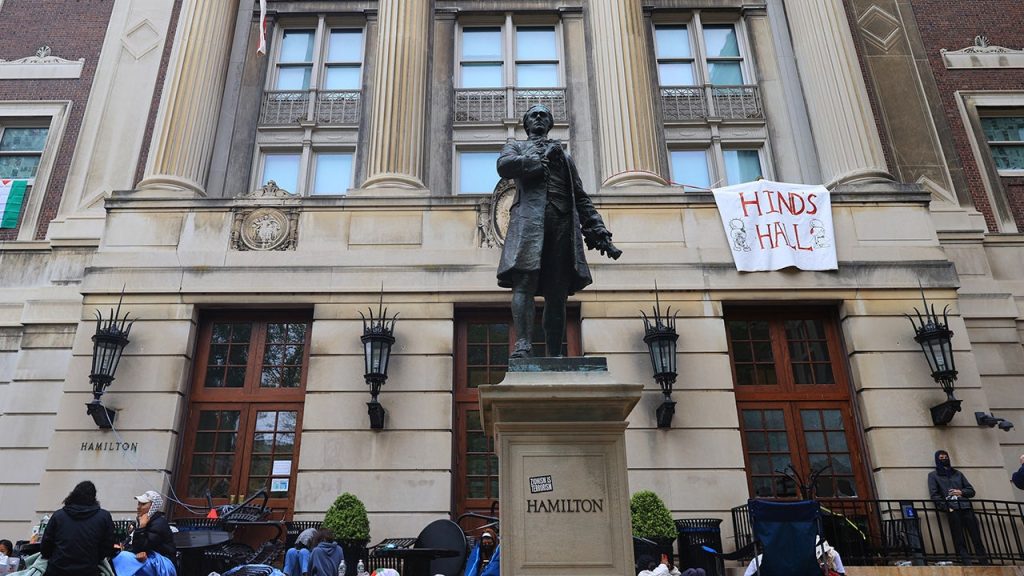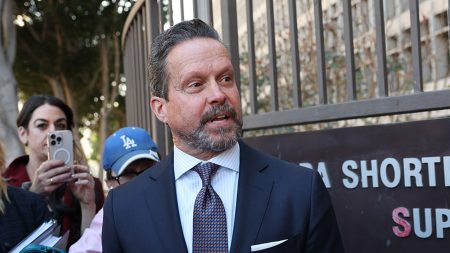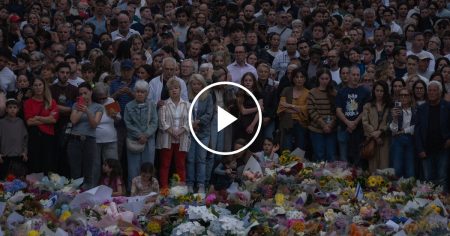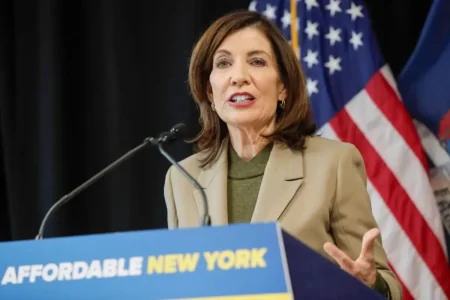The distribution of “The Columbia Intifada,” an antisemitic newspaper, by students at Columbia University has ignited a firestorm of controversy, prompting calls for repercussions and raising concerns about campus safety and freedom of speech. The newspaper, published by members of an anti-Israel student club, features articles with inflammatory titles such as “Zionist Peace Means Palestinian Blood” and “The Myth of the Two-State Solution.” The anonymity of the authors has further fueled the debate, raising questions about accountability and the potential for escalating tensions. Rep. Mike Lawler (R-N.Y.) has taken a strong stance, demanding that Columbia University face consequences, including the potential loss of federal funding and tax-exempt status, if it fails to adequately protect Jewish students. He has also called for the deportation of any international students involved in the publication who are in the U.S. on visas.
The incident has sparked a complex dialogue on the delicate balance between free speech and the need to create a safe and inclusive campus environment. Columbia University has issued a statement condemning the publication’s glorification of violence and its targeting of specific community members, asserting that such actions violate the university’s core values. The university has pledged to investigate the incident through its established policies and procedures. This investigation will likely grapple with the challenge of addressing offensive and potentially harmful speech while simultaneously upholding the principles of academic freedom and open discourse.
The distribution of “The Columbia Intifada” has deeply unsettled Jewish students at Columbia, some of whom have expressed feelings of fear and vulnerability. The inflammatory rhetoric used in the newspaper has been interpreted by some as a direct threat to their safety and well-being. Brooke Chasalow, a student at Columbia, expressed her concern that the publication’s rejection of the two-state solution indicates a lack of genuine interest in peace. This incident highlights the ongoing struggle to foster productive dialogue and understanding between pro-Palestinian and pro-Israel groups on college campuses.
However, not all students share the same perspective. Another student, who chose to remain anonymous, expressed support for the newspaper, arguing that it fosters diversity of thought and challenges censorship on campus. This differing viewpoint underscores the complexities of navigating free speech issues in an academic setting. While some believe that all viewpoints, even controversial ones, should be allowed expression, others argue that certain forms of speech, particularly those that promote hatred or violence, should not be tolerated. This tension between free speech and campus safety remains a central challenge for universities across the country.
The controversy surrounding “The Columbia Intifada” comes on the heels of a tumultuous spring semester at Columbia University, marked by anti-Israel protests that disrupted campus life and forced the cancellation of the university-wide commencement ceremony. These events have led the university to implement changes aimed at improving campus safety and security for the new academic year. The repeated occurrence of such incidents highlights the ongoing challenges faced by universities in balancing the need to protect students from harm with the commitment to fostering open dialogue and intellectual exploration.
The incident involving “The Columbia Intifada” raises several important questions about the role of universities in addressing hate speech, protecting vulnerable student populations, and fostering a climate of respect and understanding. How can universities ensure that all students feel safe and valued on campus while upholding the principles of free speech? How can they effectively address incidents of hate speech without stifling intellectual discourse? These are complex questions with no easy answers, and universities must continue to grapple with them in order to create inclusive and welcoming environments for all members of their communities. The incident at Columbia serves as a stark reminder of the ongoing challenges and the importance of continued dialogue and action.












